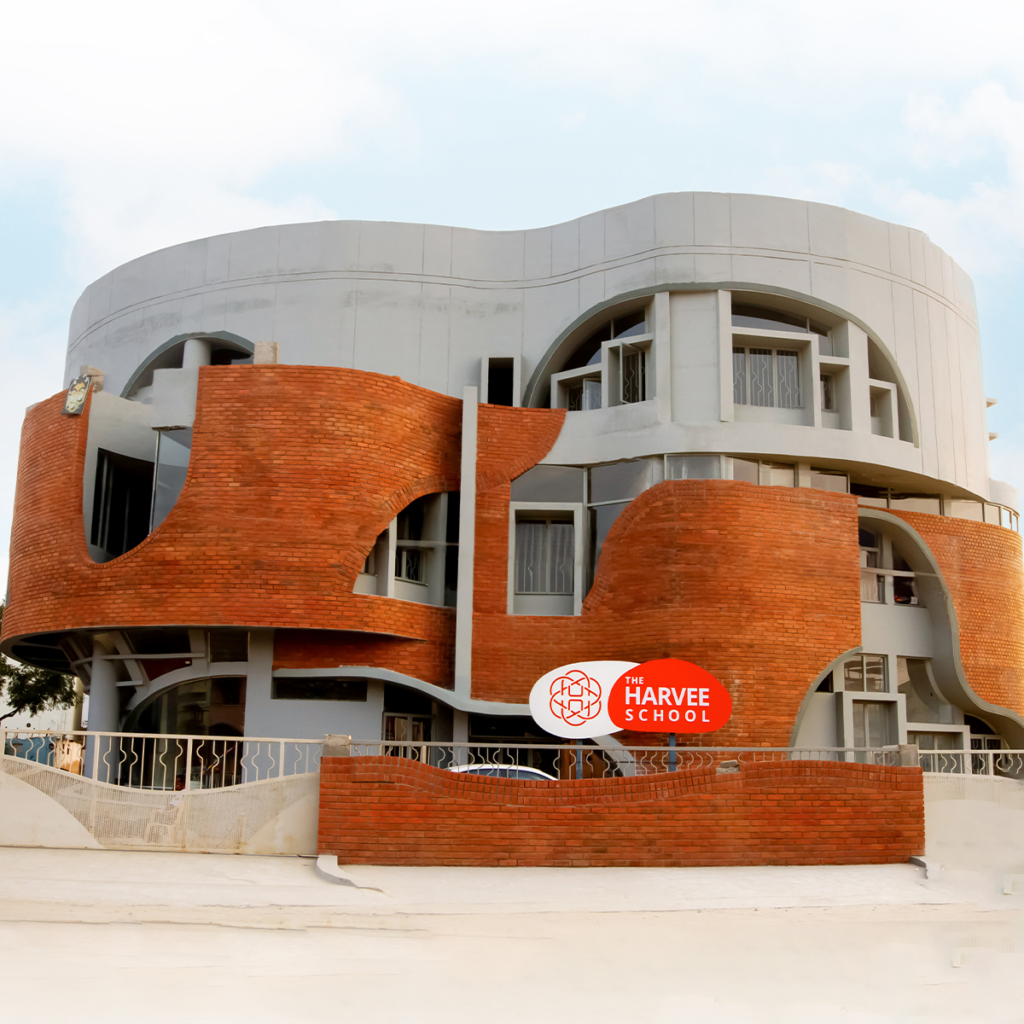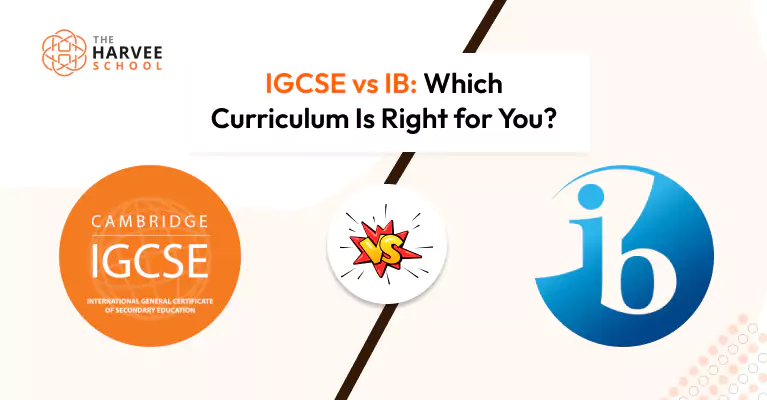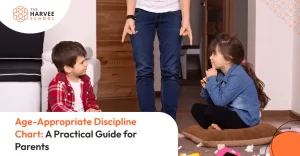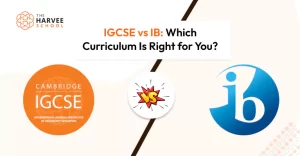IGCSE vs IB: Which Curriculum Is Right for You?
Planning your child’s educational journey?
Picking the right curriculum that suits your child’s learning style in their early years can make a big difference in how they grow and succeed in the future.
Two of the most recognized international curriculums—IGCSE (Cambridge Pathway) and IB (International Baccalaureate)—offer structured programs from Early Years to Secondary School.
But how do you decide which is better for your child between IGCSE vs IB?
This detailed comparison will help parents understand the philosophy, approach, strengths, and differences of both curriculums — setting your child on the right path from the beginning.
Overview of IGCSE (Cambridge Pathway)
While the IGCSE itself is for students aged 14–16, it is part of the larger Cambridge Pathway, which begins from Early Years and continues through Primary and Lower Secondary stages.
Cambridge Pathway Includes:
- Cambridge Early Years (Ages 3–6)
- Cambridge Primary (Ages 5–11)
- Cambridge Lower Secondary (Ages 11–14)
- IGCSE (Ages 14–16)
Key Features:
- Focus on literacy, numeracy, and science early on.
- Offers core subjects plus enrichment (e.g., Arts, ICT, Global Perspectives).
- Emphasizes skill-building and international benchmarks.
Overview of IB (International Baccalaureate)
The IB curriculum provides a continuous learning journey for children aged 3 to 19, starting with the Primary Years Programme (PYP) and continuing through the Middle Years Programme (MYP), both focused on building strong foundational skills in young learners.
IB Programme Includes:
- Primary Years Programme – PYP (Ages 3–12)
- Middle Years Programme – MYP (Ages 11–16)
- Diploma Programme – DP (Ages 16–19)
Key Features:
- Inquiry-based, student-centered learning.
- Global themes that promote international-mindedness.
- Emphasizes transdisciplinary connections (learning across subjects).
- Focus on developing the whole child — intellectually, socially, and emotionally.
IGCSE vs IB (PYP/MYP): Comparison from Early Years to Lower Secondary
Here’s a direct comparison for parents to understand the key differences between Cambridge (IGCSE Pathway) and IB for younger learners:
| Criteria | Cambridge (IGCSE Pathway) | IB (PYP & MYP) |
| Age Range | 3–14 years (Early Years to Lower Secondary) | 3–16 years (Primary Years to Middle Years) |
| Curriculum Approach | Structured, subject-based learning | Inquiry-based, transdisciplinary learning |
| Focus | Core academic skills (Maths, English, Science) | Whole-child development + academic exploration |
| Teaching Style | Teacher-led, clear learning objectives | Student-led inquiry and exploration |
| Assessment Style | Benchmarking through Cambridge Progression Tests, diagnostic tools | Ongoing formative assessments and portfolios |
| Flexibility | Schools can adapt the curriculum based on local context | More standardized, follows IB frameworks |
| Global Perspective | International content, but more academic | Strong emphasis on global citizenship and cultural awareness |
| Languages | English + optional foreign languages | Bilingual/multilingual focus encouraged from early stages |
| Creativity and Arts | Enrichment subjects available | Creativity integrated into learning (Visual arts, drama, music) |
Strengths of the Cambridge (IGCSE Pathway)
- Clear academic targets from early stages
- Familiar structure for students who prefer routine and clarity
- Widely used in British and international schools worldwide
- Strong grounding in core academic disciplines
Suitable For:
- Children who thrive in structured settings
- Parents looking for a curriculum that leads into IGCSE, A-Levels, or national boards
- Schools that prioritize academic excellence and prepare students confidently for exams.
Strengths of the IB (PYP & MYP)
- Encourages curiosity and independent thinking
- Strong emphasis on global values and personal development
- Prepares students with essential 21st-century skills such as collaboration, communication, and critical thinking.
- Ideal for kids who love exploration, creativity, and real-world connections
Suitable For:
- Children who ask a lot of “why” and enjoy project-based learning
- Families aiming for international relocation or education
- Schools committed to whole-child education and global citizenship
Assessment Differences at a Glance
| Assessment Area | Cambridge Pathway | IB PYP/MYP |
| Standardized Testing | Yes – Cambridge Progression Tests and Checkpoints | No fixed external exams in PYP; MYP includes eAssessments |
| Reporting | Grades and descriptors against set objectives | Descriptive reports, portfolios, rubrics |
| Exam Preparation Focus | Introduced gradually from Primary onwards | Focus on understanding, not exams (until MYP final stage) |
| Parent Involvement | Periodic reports and PTMs | Strong emphasis on parent-teacher-student collaboration |
Transitioning Into High School: What Happens After Grade 8?
By the end of Lower Secondary (Grade 8), many students will transition into programs like:
- IGCSE (Cambridge Year 9–10)
- IB MYP Year 4–5, leading into IB Diploma
Here’s how the two pathways align:
| End of Lower Secondary | Next Step in Cambridge | Next Step in IB |
| Grade 8 (Age 13–14) | IGCSE (Grades 9–10) | MYP Years 4–5 or DP Prep |
Understanding this helps parents choose a curriculum that aligns with long-term academic goals.
Final Thoughts
Both IGCSE (Cambridge Pathway) and IB (PYP/MYP) offer exceptional learning experiences. The best choice depends on your child’s unique learning style, personality, and your family’s goals for their education.
Choose Cambridge If:
- You prefer structured academic learning from an early age.
- You value consistent benchmarking and academic rigor.
- You’re planning to follow through with IGCSE or A-Levels later.
Choose IB If:
- You want your child to grow as a global citizen.
- You prefer a child-led, inquiry-driven approach.
- You’re targeting long-term international education options.
Remember: The early years are not just about academics — they’re about building a love for learning. Whether you choose IGCSE or IB, both curriculums offer enriching experiences that support children to grow confidently, think critically, and engage with the world.
Why Choose The Harvee School?
At The Harvee School, our expert faculty, nurturing environment, and globally benchmarked teaching practices ensure that your child not only learns but thrives. Whether your child is just starting in Early Years or preparing for middle school, The Harvee School is here to guide every step of the journey.

How does The Harvee School support each curriculum?
We offer:
- Personalized learning plans
- Modern classrooms and labs
- Global exposure through projects and events
- Regular parent updates and student mentoring
Our educators are dedicated to helping students become happy, confident, and prepared for the future.






